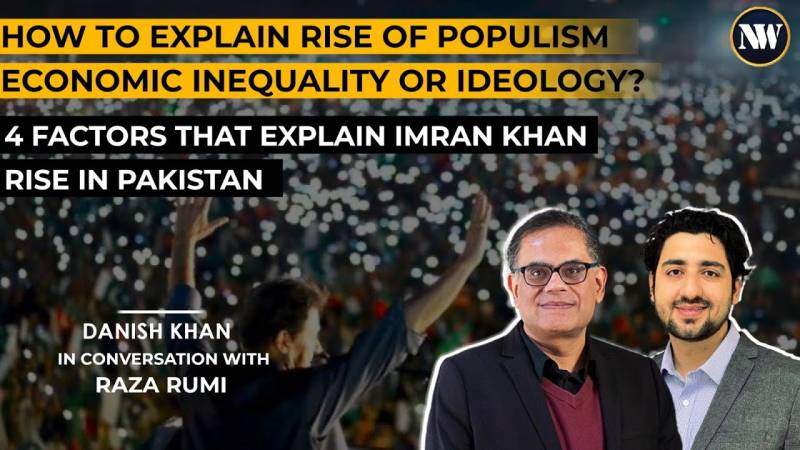The rise of Imran Khan and his brand of autocratic populism has shed light on the intricate tapestry of Pakistani politics. The former cricketer's rise to power and subsequent popularity have sparked debates about the nature of his leadership and the underlying forces that have shaped Pakistani politics. In this interview, we delve into the multifaceted factors contributing to Imran Khan's ascendancy and his persona as an autocratic populist, shedding light on the complexities of the nation's political landscape.
To understand Imran Khan's popularity, it's crucial to recognize the contextual backdrop against which Pakistani politics operate. Pakistan's historical trajectory has been marked by military interventions, weak civilian institutions, and a legacy of dynastic politics. Liberal democracy, in its truest sense, has been a fleeting concept, often overshadowed by power struggles, patronage networks, and the omnipresent influence of the military establishment.
At first glance, the term "right-wing populism" may seem like a fitting label for Imran Khan's political ideology. However, such an abstraction fails to encapsulate the nuanced reality of Pakistani politics. The societal equilibrium in Pakistan skews heavily towards the right, making it challenging to categorize individuals and parties with traditional Western labels. Imran Khan's charisma and personal achievements, akin to how Trump flaunted his wealth, have contributed to his appeal.
Unlike external threats, Imran Khan represents an internal challenge to Pakistan's multi-party parliamentary democracy. His strongman leadership narrative resonates with segments of the population disillusioned by the established political order. The absence of robust grassroots organizations, such as student unions and community groups, has created a vacuum filled by political patronage. This shift from collective action to reliance on local patrons has diminished the impetus for social change through collaborative efforts.
The rise of Imran Khan can be attributed to several institutional and socioeconomic factors. Firstly, the institution of patronage has been instrumental in shaping political dynamics. As grassroots organizations waned, political patronage emerged as a means of securing votes in exchange for local benefits. This system perpetuates a cycle of dependency on powerful local figures, hindering the potential for collective action and meaningful social change.
Secondly, the dominance of charitable initiatives, spearheaded by privileged individuals, has further eroded the public's belief in the efficacy of collective action. Instead of fostering a sense of empowerment, reliance on benevolent figures creates a culture of waiting for a savior, contributing to the rise of charismatic leaders like Imran Khan.
The third factor is the lack of critical thinking within Pakistan's education system. The absence of exposure to diverse perspectives hampers citizens' ability to critically analyze complex issues. This dearth of critical social science scholarship limits the populace's understanding of multifaceted political, social, and economic factors, leaving them susceptible to simplistic narratives.
Fourthly, established political parties' reluctance to evolve with changing times has paved the way for Imran Khan's rise. Beyond mere dynastic legacies, these parties struggle to articulate clear stances on critical issues, from economic inequality to climate change. This vacuum has allowed Imran Khan's narrative to gain traction, as he capitalizes on his ex-cricketer and ex-celebrity status to capture the imagination of the youth.
Moving forward, a multifaceted approach is essential to navigate the complexities of Pakistani politics. To begin with, mainstream political parties must adopt an emancipatory political agenda that addresses socioeconomic disparities, climate change, and social issues. They need to redefine their role and engage meaningfully with working-class and young segments of society. This shift towards a more inclusive political discourse can counter the allure of charismatic leaders by offering a concrete alternative.
Furthermore, the judiciary plays a pivotal role in maintaining democratic checks and balances. To ensure the protection of citizens' rights, the judiciary should prioritize the needs of disempowered segments, rather than getting embroiled in intra-elite political conflicts.

